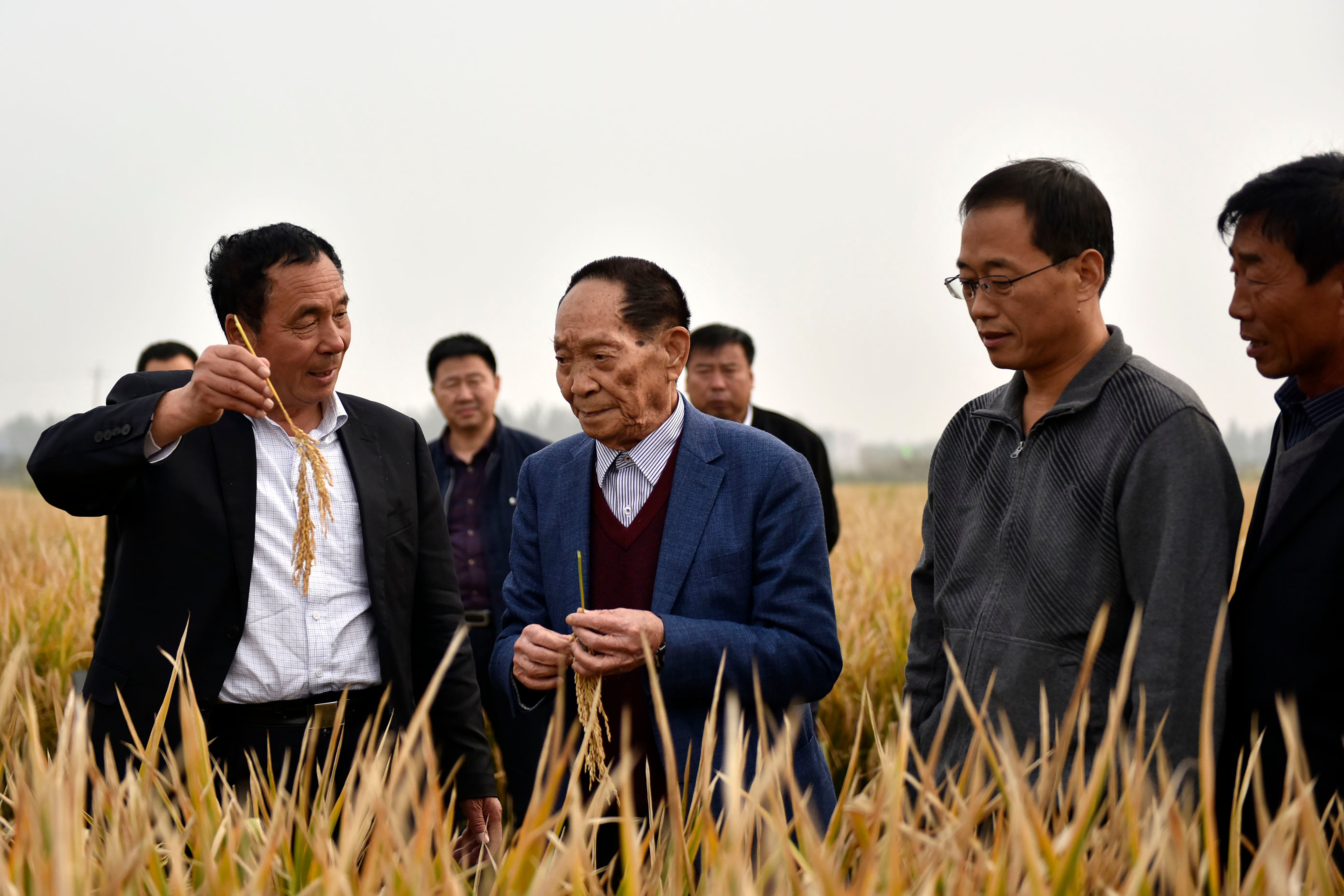China's Yuan Longping, 'Father of Hybrid Rice,' dies at 91
Chinese scientist Yuan Longping, who developed higher-yield rice varieties that helped feed people around the world, has died

Your support helps us to tell the story
From reproductive rights to climate change to Big Tech, The Independent is on the ground when the story is developing. Whether it's investigating the financials of Elon Musk's pro-Trump PAC or producing our latest documentary, 'The A Word', which shines a light on the American women fighting for reproductive rights, we know how important it is to parse out the facts from the messaging.
At such a critical moment in US history, we need reporters on the ground. Your donation allows us to keep sending journalists to speak to both sides of the story.
The Independent is trusted by Americans across the entire political spectrum. And unlike many other quality news outlets, we choose not to lock Americans out of our reporting and analysis with paywalls. We believe quality journalism should be available to everyone, paid for by those who can afford it.
Your support makes all the difference.Yuan Longping, a Chinese scientist who developed higher-yield rice varieties that helped feed people around the world, died Saturday at a hospital in the southern city of Changsha, the Xinhua News agency reported. He was 91.
Yuan spent his life researching rice and was a household name in China known by the nickname “Father of Hybrid Rice.” Worldwide, a fifth of all rice now comes from species created by hybrid rice following Yuan’s breakthrough discoveries, according to the website of the World Food Prize, which he won in 2004.
On Saturday afternoon, large crowds honored the scientist by marching past the hospital in Hunan province where he died, local media reported, calling out phrases such as: “Grandpa Ye, have a good journey!”
It was in the 1970s when Yuan achieved the breakthroughs that would make him a household name. He developed a hybrid strain of rice that recorded an annual yield 20% higher than existing varieties — meaning it could feed an extra 70 million people a year, according to Xinhua.
His work helped transform China from “food deficiency to food security” within three decades, according to the World Food Prize, which was created by Nobel Peace Prize laureate Norman Borlaug in 1986 to recognize scientists and others who have improved the quality and availability of food.
Yuan and his team worked with dozens of countries around the world to address issues of food security as well as malnutrition.
Even in his later years, Yuan did not stop doing research. In 2017, working with a Hunan agricultural school, he helped create a strain of low-cadmium indica rice for areas suffering from heavy metal pollution, reducing the amount of cadmium in rice by more than 90%.